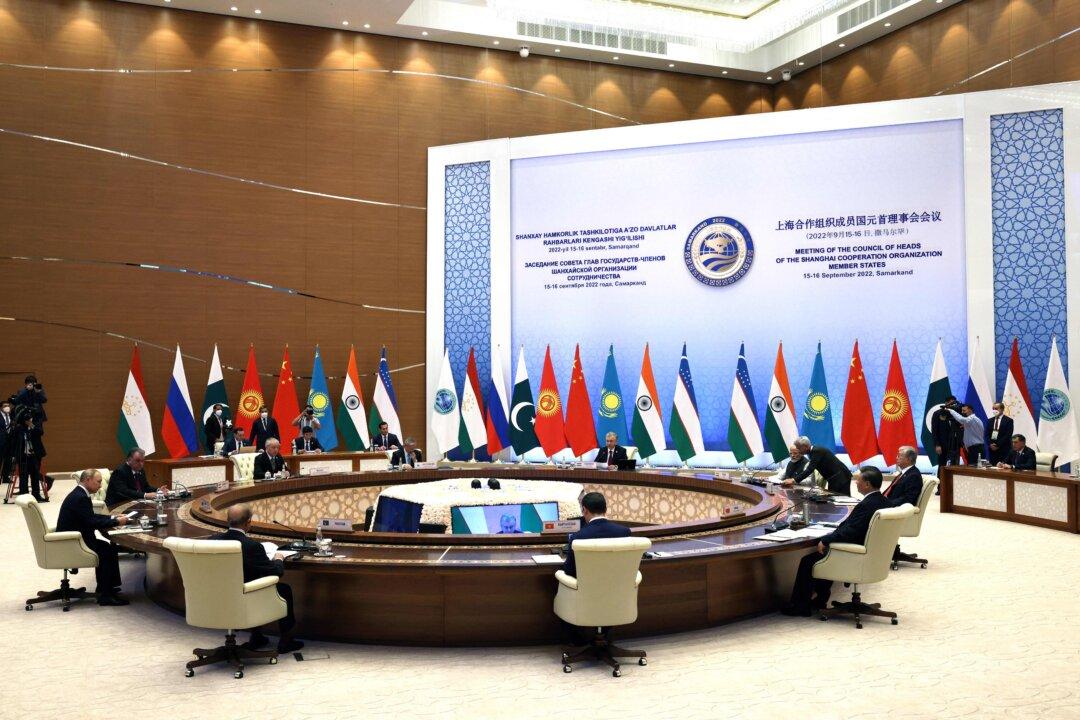Leaders of Shanghai Cooperation Organization (SCO) member states met in Samarkand, Uzbekistan, on Sept. 15 and Sept. 16 to discuss Eurasia’s current political, economic, and security trajectory.
Russia plays a prominent role in the SCO, which was originally founded by Moscow and Beijing in hopes of counterbalancing U.S. global influence.





